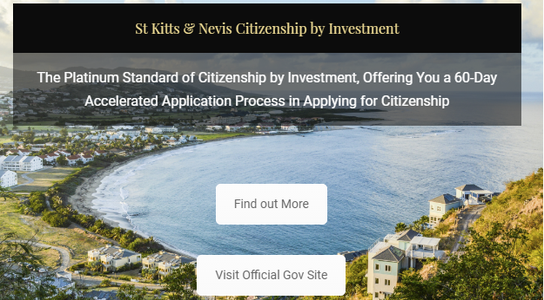Burgundy passports are turning gold, as EU governments sell residency and citizenship to the ultra-rich. By their nature, these schemes pose inherent risks for corruption, as people who steal money from their home countries need other jurisdictions to escape to when the going gets tough.
Golden visa schemes offer
fast-track citizenship and/or residency to foreign nationals in exchange for lots
of cash. European golden visas are particularly appealing, as they give their
owners free reign to move throughout the EU, unconstrained by interference or
checks.
There are numerous examples of high-risk business people and oligarchs enjoying all the benefits that golden visas have to offer.
Read our blog 'Red Notice on Golden Visas' here
Currently, four EU
Member States sell passports and 12 trade with residency rights. Given the inherent risks, these schemes ought
to have the highest standards of due diligence checks so that countries know
who they are welcoming in and where their money came from. Unfortunately, that
is not what our joint investigation with Transparency International found. We
discovered that risky individuals are buying access to the EU, and that these
schemes are risking the corruption of the state itself as profit-hungry
governments disregard the dangers and enter into a race to the bottom to
attract hefty investments.
Finding safe haven through these schemes is simpler than you might think if you
have a lot of money to spare. Despite the risks posed by golden visa schemes,
several of the governments selling residency and citizenship do not seem to
question where applicants’ money comes from. This perhaps contributes to the EU:
- Welcoming over 6,000 new citizens and close to 100,000 new residents through golden visas schemes in the last decade.
- Attracting around €25 billion in foreign direct investment through golden visas over the last ten years.
While some nations are profiting from the sales of golden visas, all EU citizens take the sizeable hit due to the ethical implications and risks embedded in the current practice. Nonetheless, secrecy continues to obscure even basic information about these schemes and EU citizens do not have the information necessary to decide whether selling residency or citizenship is a risk worth taking.
We have worked with Transparency
International to change this, investigating publicly available sources and
reaching out to national governments for additional information. In our latest report, we are able to shine
some light on the shady situation, revealing a telling though still incomplete
picture of the golden visa scheme.
Recommendations:
With Transparency International, we call upon EU institutions to:
- Set EU-wide standards for golden visa schemes, including enhanced due diligence and transparency;
- Identify and regularly assess the risks posed by schemes for the EU as a whole and mitigate accordingly;
- Seek to broaden anti-money laundering rules so they apply to all players in the golden visa industry;
- Establish mechanisms for collecting and coordinating information on applications, investment and rejections;
- Start legal proceedings against member states whose schemes could undermine the collective security of EU nations.
Download our Executive Summary to see a full list of our recommendations (PDF)
You might also like
-
Blog post ‘Golden visas’ candidates should be thoroughly screened
The EU is bribing Libya to prevent desperate young men and women reaching the safety of our shores, while member states open wide their doors to corrupt foreign politicians who can buy ‘golden visas’. Guest blog from Ana Gomes MEP.
-
Blog post Red notice on golden visas
We have been worried about the corruption risks in golden visa schemes for a while now because we see first-hand how the corrupt operate – and we know that buying access to a safe bolthole is a desirable part of the corruption arsenal.
-
Press release Murky world of Golden Visas puts EU at risk of corruption
The potential for corruption is ‘significant’ with large sums of money changing hands in these ‘passport for sale’ schemes.